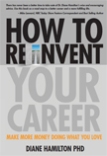Online Classes Offer Balance

Online classes offer a variety of advantages for working adults who have enough on their plate without adding the stress of finding time for an education. Probably the hardest part of attending a traditional university, for me, was finding time to fit it into my schedule. I worked the traditional workday and then I had to make it to three-hour class four nights a week. This was brutal because by the time I drove home and got to bed, it was close to midnight. I would have to get up at 6 am and start all over again. Thankfully I was in my early 20s at the time. I honesty do not think I could handle that sort of schedule now.
Traditional courses took at least four hours out of my day (to just attend class). Then I had an hour or two of homework each day that I had to squeeze in either before midnight or on my lunch breaks. At minimum, I probably spent at least five hours a day dealing with school-related issues. In online classes, since there are no lectures, and there is no driving and parking, etc., I probably spent about two hours a day. When you are a working adult with family responsibilities, saving three hours a day is huge.
Traditional schools may be a great thing for people who have the time and money to afford them. Unfortunately many people do not have that luxury. Some students will have to obtain financial help whether they attend traditional or online courses. The advantage of online courses is that students have more time to work to pay for the loans.
I have read many articles about the value of a traditional education versus an online education. Many of them have been written by professors who work in brick and mortar classrooms. I understand their perspective. There may be some wonderful things to be learned at a traditional university. The problem is that it is not that simple. In today’s society, traditional roles have changed. Women may have much more responsibilities outside of the home. The stress of raising a family, working, and trying to squeeze in time for education may make the choice of a traditional college a poor option.
It is not appropriate to make blanket statements about all online courses based on limited experience. I have worked for many different online universities. They are not all the same. Some offer a better education. Comparing MOOCs to traditional online courses is like comparing apples to oranges. The same is true about comparing unaccredited universities with accredited universities.
Accredited online courses offer people a quality education and a life. I do not believe that sitting in a lecture hall adds that much to the learning experience. All of the driving, parking and sitting in class, took away precious time that I believe did not add to my educational experience. All it did was stress me out and leave less time for others. Thankfully I finished my traditional education before my children were born. Once I had a family, distance education became an option and opened up incredible opportunities for me. It is interesting that traditional universities now offer more online courses. The same institutions that had “issues” with online education now provide it. The good news is that everyone is waking up and realizing that online education offers the best of all worlds for those who want it.
Related Articles:









![[MAJORPAY]](https://i0.wp.com/sg.wsj.net/public/resources/images/MK-BH059_MAJORP_NS_20101024184018.gif)

Shawn Dragonaire 4:33 pm on July 11, 2013 Permalink |
I completely agree with your perspective on this specific topic. I have also been taking notice of more traditional non-profit colleges and universities starting to offer online course and gradually expanding into full programs. Thanks for sharing with us and it will be most interesting to observe how online degree programs start to become the accepted norm in public and private traditional colleges/universities within the next 5+ years.